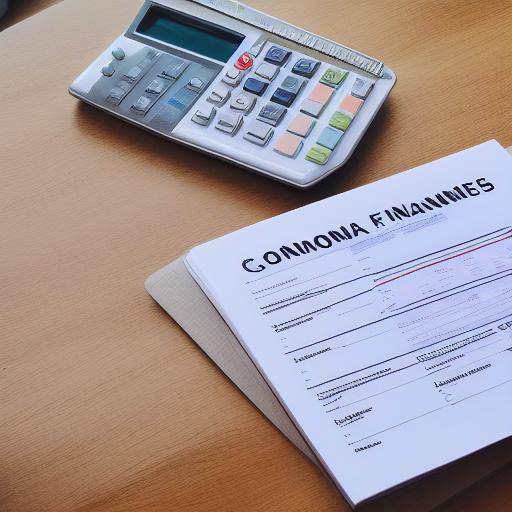
Financial planning plays a crucial role in everyday life, as it allows us to effectively manage our economic resources to achieve goals and ensure security for the future. However, making mistakes in this process can be costly and limiting our chances of achieving stability and financial well-being. In this article, we will explore the most common mistakes in financial planning, together with practical advice and reflections on financial education and personal finance.
Planning Errors: What are and how to avoid them?
Unknown or ignore the importance of financial planning
One of the most serious mistakes is to underestimate the importance of financial planning. Many people do not understand that this practice is not only relevant to those with high income, but is essential to all people, regardless of their economic situation. Lack of conscience leads to uninformed financial decisions and ultimately to economic difficulties.
Do not set clear targets
The absence of clear financial goals is another common mistake. Without a clear destination, it is difficult to trace an effective financial path. By not having specific goals, you run the risk of spending money indiscriminately, under-saving or indebted without a defined purpose.
Don't take a budget
The budget is a key tool in financial planning. However, many people do not use it, resulting in an inefficient distribution of economic resources. Failure to take a budget can lead to unchecked spending, excessive indebtedness or inability to save for important goals.
Ignore insurance and financial protection
Lack of insurance coverage or underestimation of its importance is a significant mistake. Unforeseen, such as serious illnesses, accidents or loss of employment, can drastically impact the financial situation without adequate protection.
Not investing or not doing so in an informed way
Lack of knowledge about investment options or the absence of a sound investment strategy can limit long-term financial growth opportunities. In addition, blind investment can lead to significant losses.
To be irresponsible
The irresponsible indebtedness, whether through personal loans, credit cards or consumer goods financing, can become an overwhelming financial burden if not handled properly. Lack of awareness of the risks associated with indebtedness can lead to difficult situations.
No retirement planning
Posterating retirement planning is another common mistake. Failure to allocate financial resources in advance for retirement may result in economic difficulties in old age.
Financial education: The key to avoiding financial errors
Financial education plays a key role in the prevention of financial errors. Knowing the basic concepts of budget, savings, investment, insurance, responsible indebtedness and retirement planning provides the tools necessary to make informed and prudent financial decisions.
Importance of financial education
Financial education is a fundamental pillar for economic well-being. It provides the knowledge necessary to understand the proper management of financial resources, the importance of savings, investment diversification, insurance protection and long-term planning.
Sources of financial education
There are many resources to acquire knowledge in financial education, such as specialized books, online courses, workshops, professional financial advice and educational materials provided by financial institutions and government agencies.
Integration of financial education from early ages
Financial education should be an integral part of the education system, starting from early ages. Including basic financial concepts in formal education provides future generations with the basis for sound and responsible financial decisions.
Personal finance: Effective management for a stable future
Personal finances cover individual management of economic resources, planning for specific goals and creating a financial mattress that provides security throughout life.
Key elements of personal finance
Personal finances include budget management, smart savings, strategic investment, insurance protection and retirement planning. Each of these elements plays a crucial role in building long-term financial stability.
Importance of personal finance budget
The budget is the basis for healthy personal finances. It provides a clear view of income and expenditure, allows adjustments to meet financial targets and avoids unnecessary expenses.
The role of savings in personal finance
Saving is the tool that allows us to create an emergency fund, make investments and achieve short, medium and long-term financial goals. It forms a crucial part of responsible personal finances.
Investment strategies for financial growth
Informed investment strategies contribute to the growth and diversification of personal assets. Correct risk management and understanding of different types of investments are key aspects to effectively use this tool.
Financial protection through insurance
The acquisition of adequate insurance is essential to safeguard assets and protect against unforeseen contingency that could adversely affect the personal and family financial situation.
Retirement Planning: Looking forward
Early retirement planning ensures that sufficient resources are available to maintain a desired standard of living in old age. The sooner you start planning, the greater the opportunities to achieve a safe and comfortable retirement.
Final findings and frequent questions
Conclusions
Effective financial planning is critical to achieving stability and economic well-being throughout life. Avoiding common mistakes, seeking financial education and managing personal finances are essential steps to build a sound and secure financial future.
Frequently asked questions
Why is financial planning important?
Financial planning is crucial to managing economic resources effectively, achieving financial targets and ensuring long-term security.
What benefits does financial education bring?
Financial education provides the knowledge needed to make informed financial decisions, avoid common mistakes and establish solid foundations for economic well-being.
How can I begin to educate myself financially?
You can start by financially educating yourself through specialized books, online courses, professional advice and educational materials available in various sources.
What is the importance of savings in personal finance?
Savings are critical to creating a financial mattress, investing and achieving short-, medium- and long-term financial goals.
How can I protect myself through insurance?
Acquiring appropriate insurance, such as life, health, home or vehicle insurance, provides protection from unforeseen contingency that could adversely affect the financial situation.
Why is retirement planning crucial?
Retirement planning ensures that sufficient resources are available to maintain a desired standard of living in old age and enjoy a safe and comfortable retirement.
With the information provided in this article, readers will be better prepared to avoid mistakes in their financial planning, expand their financial education and properly manage their personal finances to build a stable and secure economic future.






















































